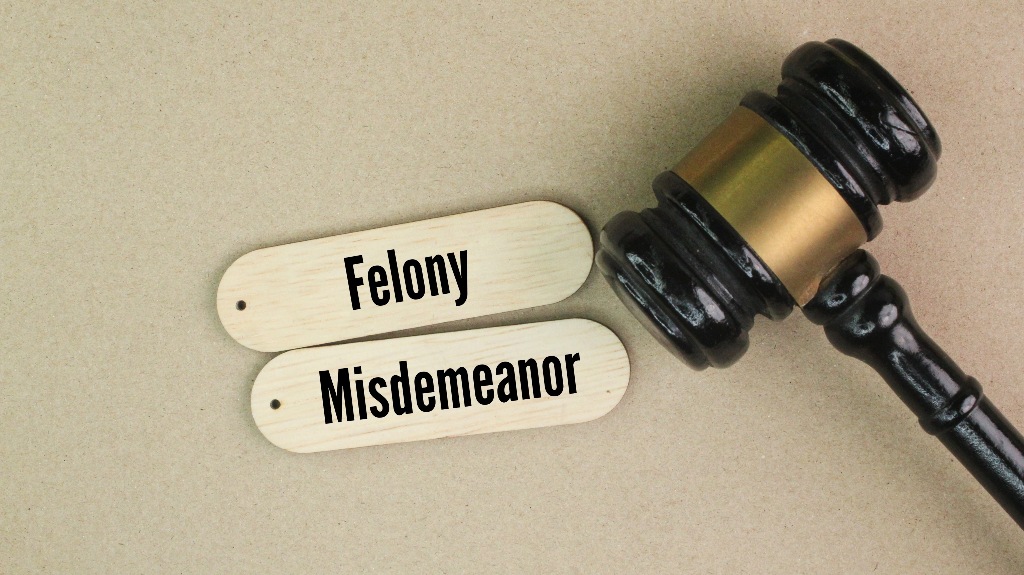There are major differences between misdemeanor and felony charges in Missouri. Knowing the implications of each is critical, particularly if you or a family member is faced with charges.
Having a trusted criminal defense attorney on your side, one who can explain each step of the process and who is available to answer your questions, is a crucial ally. A good defense attorney not only knows the law but also the local courts and prosecutors. The information learned from a career in the courts is indispensable.
What You Need to Know About Misdemeanors and Felonies
Courts are divided into criminal and civil jurisdictions. Criminal charges are those that involve an arrest or a warrant. Civil cases are lawsuits such as evictions, breach of contract, or negligence.
In criminal court, charges are divided into misdemeanors and felonies according to the severity and dangerousness of the offense.
What is a Misdemeanor?
Misdemeanors are categorized as Class A, B, C, and D according to severity. While these are lower-level offenses, they may still result in jail time if convicted. Sometimes, misdemeanors do not involve actual trials with juries but, particularly if it’s a first-time offense, can be settled by a judge or magistrate in a brief hearing.
- A Class A misdemeanor conviction can result in up to one year in jail and a fine up to $2,000.
- A Class B misdemeanor conviction can result in six months in jail and a fine of up to $1,000.
- Class C misdemeanor convictions can result in 15 days’ jail time and/or fines.
- Class D misdemeanor convictions are more likely to involve fines (up to $500) and/or community service.
Sometimes the difference between a misdemeanor and a felony charge for the same crime is value or severity. Shoplifting can be a misdemeanor unless the value exceeds the $750 threshold per Missouri law, at which point it is charged as a felony.
Typical misdemeanors include:
Trespassing, petty theft, vandalism, loitering, disorderly conduct, first time DUI.
What is a Felony?
Felonies are categorized as Class A, B, C, D, and E according to severity. These are charges that carry a year or more in state prison if convicted. Felonies usually involve a jury trial.

- Class A convictions result in 10 to 30 years or life imprisonment.
- Class B felony convictions result in 5 to 15 years imprisonment.
- Class C convictions carry a penalty of 3-10 years in prison.
- Class D convictions carry a penalty of up to 7 years in prison.
- Class E felony convictions result in up to 4 years in prison and/or fines up to $10,000.
Violent crimes and actions that result in serious destruction of property are usually charged as felonies, as is major theft (depends on value), aggravated DWI, certain drug possession/distribution charges, and assaults that result in severe injury.
There can be long-lasting consequences for felonies, including the right to possess firearms (depending on the charge), the ability to vote (which is usually restored after completing a sentence), or getting a professional license from the state. Eligibility for housing or some kinds of employment may also be withheld following a felony conviction.
How an Experienced Criminal Defense Attorney Helps You
An experienced defense attorney can do more than plead your case: they can evaluate the evidence, negotiate the charges, perhaps seeking a plea deal that results in a reduced charge, especially if it’s your first offense or if there were complicating factors. Diversion programs or probation are other negotiating terms that a good attorney knows how to bargain with.
Mueller Law Group can be your partner at the defense table, and will advocate for your rights before and after the trial. Contact us for a consultation today.


